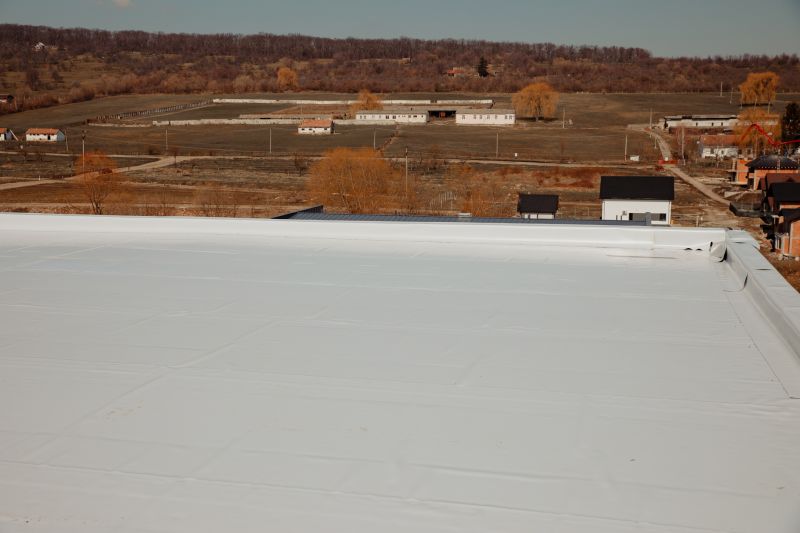Favorite Roofing Service Tools For Contractors
Identify must-have equipment that boosts productivity and ensures high-quality roofing workmanship.
 In the realm of roofing services, having the right products is essential for ensuring durable, effective, and efficient roofing projects. From the initial assessment to final installation, a variety of specialized tools and materials are required to meet the diverse needs of roofing professionals and homeowners alike. Quality roofing products not only contribute to the longevity of a roof but also facilitate safer and more streamlined work processes.
In the realm of roofing services, having the right products is essential for ensuring durable, effective, and efficient roofing projects. From the initial assessment to final installation, a variety of specialized tools and materials are required to meet the diverse needs of roofing professionals and homeowners alike. Quality roofing products not only contribute to the longevity of a roof but also facilitate safer and more streamlined work processes.
Top Overall Option
All-in-One Roofing Toolkit
An all-in-one roofing toolkit provides a comprehensive selection of essential tools and accessories needed for various roofing tasks. It typically includes safety gear, hand tools, fasteners, and adhesives, making it a versatile choice for both professionals and DIY enthusiasts. This type of product simplifies procurement and ensures that key items are readily available for completing roofing projects efficiently.
Types of Products For Roofing Service
Roofing Safety Gear
Includes harnesses, helmets, gloves, and fall protection equipment designed to keep workers safe during roofing tasks.
Roofing Nailing Guns
Power tools used for quick and secure fastening of shingles, underlayment, and other roofing materials.
Roofing Adhesives and Sealants
Materials used to bond roofing components and seal joints to prevent leaks and enhance durability.
Underlayment Materials
Protective layers installed beneath roofing materials to provide additional waterproofing and insulation.
Roofing Fasteners
Nails, screws, and clips designed specifically for securing roofing materials to the structure.
Roofing Membranes
Weather-resistant membranes that serve as a primary barrier against water intrusion.
Shingle Removal Tools
Specialized tools for safely removing old shingles and roofing layers during repairs or replacements.
Roofing Flashing
Metal or plastic components used to direct water away from critical areas such as chimneys and vents.
Roofing Brackets and Supports
Support systems that assist in securing and aligning roofing materials during installation.
Roof Inspection Cameras
Remote cameras and drones used for inspecting hard-to-reach areas of a roof safely and accurately.
Roofing Ventilation Products
Vents and fans that promote airflow and prevent moisture buildup within the roofing system.
Roofing Cleaning Equipment
Tools such as pressure washers and scrub brushes for maintaining and preparing roofing surfaces.
Roofing Repair Kits
Complete kits containing patches, sealants, and tools for small-scale repairs and maintenance.
Roofing Drip Edge
Metal strips installed along roof edges to guide water into gutters and prevent damage.
Roofing Fastening Tools
Manual or pneumatic tools designed to install fasteners efficiently and securely.
Popular Choices
Harnesses designed to provide fall protection for roofing workers during high-elevation tasks.
Battery-powered nailers that enable quick and mobility-friendly fastening for roofing projects.
Self-adhesive tapes used to seal seams and joints, offering quick waterproofing solutions.
Lightweight, durable underlayment materials that provide additional waterproofing layers.
Corrosion-resistant nails suitable for securing various roofing materials in different conditions.
A widely used rubber membrane for flat roofs, valued for its flexibility and weather resistance.
Tools designed for removing old roofing material and cleaning surfaces before new installation.
Preformed metal pieces used to seal and protect roof joints and protrusions.
Caps that cover roof vents to prevent debris and water ingress while allowing airflow.
Drones equipped with cameras for detailed visual inspections of roofing surfaces.
Electric fans that help improve attic airflow and reduce moisture accumulation.
Heavy-duty brushes designed for removing moss, algae, and debris from roofing surfaces.
Flexible tape used for quick patching of leaks and minor damages.
Durable metal strips that help direct water away from roof edges and prevent damage.
Air-powered stapler ideal for fast and secure fastening of roofing materials.
Roofing projects often demand a combination of protective gear, installation tools, and repair materials. For example, proper safety equipment helps protect workers from potential hazards on the job site, while specialized fasteners and adhesives ensure secure attachment of roofing components. Additionally, weather-resistant membranes and sealants play a crucial role in preventing leaks and extending the lifespan of roofing systems.
Choosing the right products involves understanding the specific requirements of each project, including the type of roofing material, the scope of work, and environmental considerations. It is important to select products that are compatible with the existing roof structure and meet industry standards for quality and safety. Proper selection and use of these products can lead to more efficient workflows, fewer repairs down the line, and overall project success.
Whether you are a seasoned roofing contractor or a dedicated homeowner undertaking a roof repair, having access to a comprehensive range of roofing products can make a significant difference. From basic tools to advanced materials, the right products help ensure that roofing tasks are completed safely, effectively, and to a high standard of quality.
Key Buying Considerations
- Compatibility with existing roofing materials and systems.
- Durability and weather resistance of the products.
- Ease of installation and handling, especially for DIY projects.
- Safety features and compliance with industry standards.
- Compatibility with project scope, whether repair or new installation.
- Availability of replacement parts and accessories.
- Product certifications and quality assurances.
- Cost-effectiveness relative to project budget.
- Manufacturer reputation and customer reviews.
- Environmental conditions of the installation site, such as wind, rain, or snow exposure.
- Weight and size of tools and materials for ease of transport and handling.
- Warranty options or guarantees offered by the supplier.
- Compatibility with tools and equipment already in use.
- Ease of maintenance and cleaning of products.
- Availability of technical support or customer service.
